Intro
Discover the versatile uses of Atenolol, a beta-blocker medication, in managing hypertension, angina, heart failure, and arrhythmias, while also exploring its applications in migraine prevention and performance anxiety treatment.
Atenolol is a medication that belongs to the class of beta-blockers, which are used to treat various cardiovascular conditions. It works by slowing down the heart rate and reducing the force of the heart's contractions, thereby lowering blood pressure and increasing oxygen supply to the heart. Atenolol is one of the most commonly prescribed beta-blockers due to its effectiveness and relatively mild side effects. In this article, we will explore the different uses of atenolol and its benefits.
Atenolol has been widely used for several decades to treat various cardiovascular conditions, including high blood pressure, angina, and heart failure. It is also used to prevent heart attacks and strokes in people with a high risk of cardiovascular disease. The medication is available in tablet form and is usually taken once a day. Atenolol is a long-acting beta-blocker, which means that its effects can last for up to 24 hours, making it a convenient option for people who have trouble remembering to take their medication multiple times a day.
The use of atenolol has been extensively studied, and its effectiveness has been proven in numerous clinical trials. It has been shown to reduce the risk of heart attacks and strokes by up to 30% in people with high blood pressure and other cardiovascular risk factors. Atenolol has also been found to improve survival rates in people with heart failure and to reduce the severity of angina symptoms. With its proven track record and relatively mild side effects, atenolol remains a popular choice among healthcare providers for the treatment of various cardiovascular conditions.
What is Atenolol Used For?
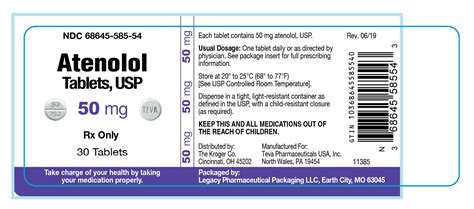
Benefits of Atenolol
Atenolol has several benefits that make it a popular choice among healthcare providers. It is relatively inexpensive compared to other beta-blockers, and its long-acting formula makes it convenient for people who have trouble remembering to take their medication multiple times a day. Atenolol is also generally well-tolerated, with mild side effects that are usually temporary and resolve on their own. Some of the most common side effects of atenolol include fatigue, dizziness, and nausea.Uses of Atenolol in Cardiovascular Disease

High Blood Pressure
Atenolol is commonly used to treat high blood pressure, which is a major risk factor for cardiovascular disease. It works by slowing down the heart rate and reducing the force of the heart's contractions, which lowers blood pressure and increases oxygen supply to the heart. Atenolol is usually prescribed in combination with other medications, such as diuretics and ACE inhibitors, to achieve optimal blood pressure control.Uses of Atenolol in Angina
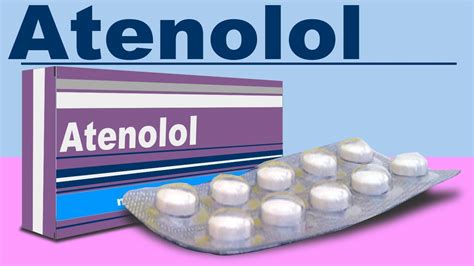
Heart Failure
Atenolol is used to treat heart failure, which is a condition characterized by the heart's inability to pump enough blood to meet the body's needs. It works by reducing the heart's workload and increasing oxygen supply to the heart, which improves cardiac function and reduces the risk of cardiovascular complications. Atenolol is usually prescribed in combination with other medications, such as ACE inhibitors and diuretics, to achieve optimal symptom control.Uses of Atenolol in Preventing Heart Attacks and Strokes
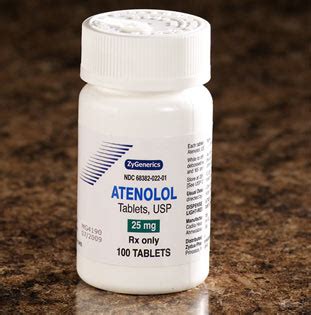
Benefits of Atenolol in Preventing Heart Attacks and Strokes
The use of atenolol in preventing heart attacks and strokes has been extensively studied, and its benefits have been proven in numerous clinical trials. Atenolol has been shown to reduce the risk of heart attacks and strokes by up to 30% in people with high blood pressure and other cardiovascular risk factors. It has also been found to improve survival rates in people with heart failure and to reduce the severity of angina symptoms.Side Effects of Atenolol
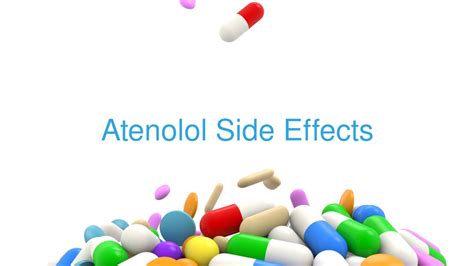
Serious Side Effects of Atenolol
While rare, atenolol can cause serious side effects, including: * Bradycardia (slow heart rate) * Hypotension (low blood pressure) * Heart block * Cardiac arrest * StrokeInteractions with Other Medications
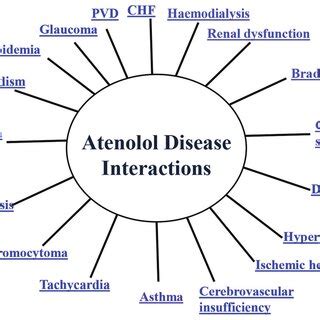
Benefits of Atenolol Interactions
The use of atenolol in combination with other medications can provide additional benefits, including: * Improved blood pressure control * Reduced risk of cardiovascular complications * Improved survival rates in people with heart failure * Reduced severity of angina symptomsConclusion and Future Directions
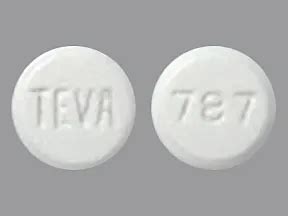
We invite you to share your thoughts and experiences with atenolol in the comments section below. If you have any questions or concerns about atenolol or its uses, please do not hesitate to ask. You can also share this article with your friends and family members who may benefit from the information.
What is atenolol used for?
+Atenolol is used to treat high blood pressure, angina, and heart failure, and to prevent heart attacks and strokes in people with a high risk of cardiovascular disease.
What are the benefits of atenolol?
+The benefits of atenolol include improved blood pressure control, reduced risk of cardiovascular complications, improved survival rates in people with heart failure, and reduced severity of angina symptoms.
What are the side effects of atenolol?
+The side effects of atenolol include fatigue, dizziness, nausea, headache, diarrhea, and constipation. Serious side effects include bradycardia, hypotension, heart block, cardiac arrest, and stroke.
Can atenolol be used in combination with other medications?
+Yes, atenolol can be used in combination with other medications, including calcium channel blockers, ACE inhibitors, diuretics, nitrates, statins, and aspirin.
What is the future of atenolol in the treatment of cardiovascular disease?
+The future of atenolol in the treatment of cardiovascular disease is promising, with ongoing research and development of new formulations and combinations with other medications.
